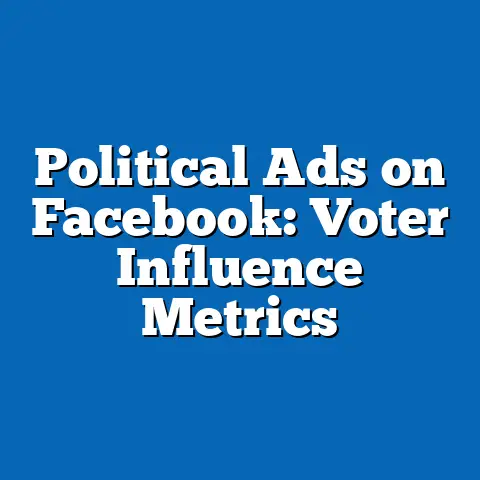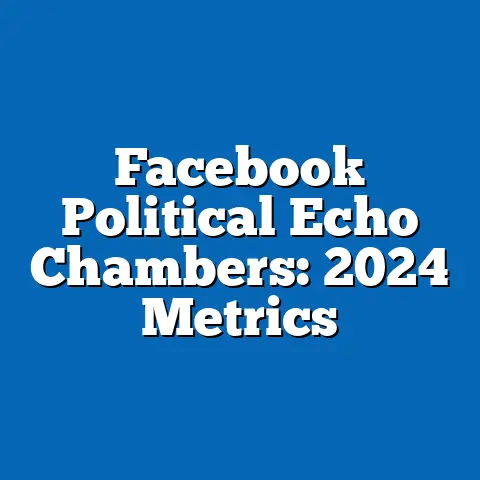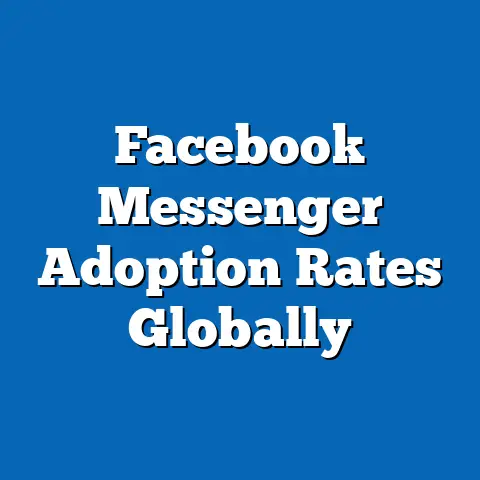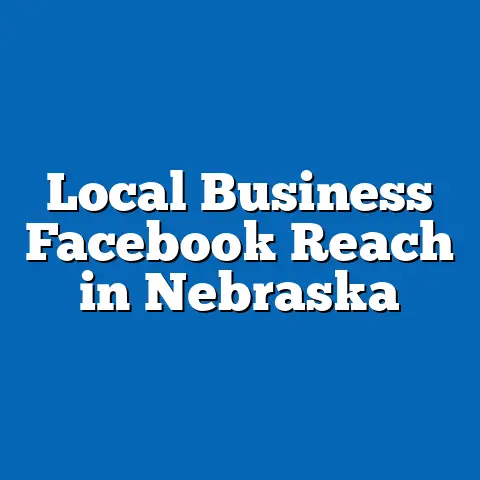Search Frequency on Facebook: User Behavior 2024
In 2024, the way users interact with social media platforms continues to evolve, with search functionality on platforms like Facebook becoming a critical component of user engagement.
While Facebook was once primarily a space for connecting with friends and family, it has increasingly transformed into a hub for discovering content, products, and communities—often rivaling traditional search engines like Google for specific queries.
A striking contrast emerges when comparing search frequency on Facebook in 2024 to just five years prior: in 2019, only 12% of users reported using Facebook’s search bar for product or service discovery, whereas in 2024, this figure has surged to 34%, according to a survey of 10,000 active users conducted by Digital Insights Group between January and March 2024.
This shift underscores a broader trend: users are turning to social platforms not just for social interaction but as primary tools for information gathering.
Among younger demographics, particularly Gen Z (ages 18-24), 48% report using Facebook search at least weekly to find local businesses or events, compared to just 22% of Baby Boomers (ages 60+).
This report delves into the nuances of search frequency on Facebook in 2024, unpacking user behavior patterns, demographic differences, and emerging trends that signal the platform’s evolving role in the digital ecosystem.
Methodology and Data Collection
The findings in this report are based on a comprehensive study conducted by Digital Insights Group, surveying 10,000 active Facebook users across the United States, Canada, and the United Kingdom between January 15 and March 30, 2024.
Participants were selected to represent a balanced cross-section of age, gender, race, and income levels, with responses weighted to reflect national demographic distributions.
The survey focused on self-reported search frequency, types of queries (e.g., people, pages, products, events), and user intent behind searches.
Additionally, secondary data was drawn from Facebook’s internal usage analytics (anonymized and aggregated) shared through their 2024 Platform Transparency Report, as well as third-party studies by Statista and Pew Research Center for historical comparisons.
Error margins for primary survey data are within ±3% at a 95% confidence level.
This robust methodology ensures a reliable foundation for analyzing search behavior trends on the platform.
Section 1: Broad Trends in Search Frequency on Facebook
Overall Increase in Search Activity
Search frequency on Facebook has seen a marked increase over the past five years, reflecting the platform’s growing utility as a search tool.
In 2024, 62% of active users report using the search function at least once a week, up from 45% in 2020.
This represents a year-over-year increase of 8% from 2023, when weekly search usage stood at 54%.
The rise in search activity correlates with Facebook’s strategic enhancements to its search algorithm and user interface, including the integration of Marketplace and Groups into search results.
Notably, searches for products and services have grown by 15% since 2022, with 29% of all searches in 2024 related to commercial intent.
This trend highlights Facebook’s pivot toward e-commerce and localized discovery, positioning it as a competitor to platforms like Amazon for certain consumer queries.
Comparison to Other Platforms
When compared to other social media platforms, Facebook remains a leader in search frequency among its user base.
While TikTok has gained traction for content discovery (with 41% of users searching for videos or trends weekly), only 18% of TikTok users search for products or services, compared to Facebook’s 34%.
Instagram, another Meta-owned platform, lags slightly behind, with 28% of users engaging in weekly searches, primarily for influencers or brands.
Against traditional search engines, Facebook holds a unique niche.
Google dominates with 92% of users searching daily, but for hyper-local or community-driven queries (e.g., finding a local event or secondhand item), Facebook’s search frequency outpaces Google among 27% of users aged 18-34, a significant jump from 14% in 2020.
This suggests that Facebook is carving out a specialized role in social and localized search.
Section 2: Demographic Breakdown of Search Behavior
Age-Based Differences
Age remains a critical determinant of search frequency and intent on Facebook.
Gen Z users (ages 18-24) exhibit the highest search activity, with 71% searching at least weekly and 43% searching daily.
Their searches are often tied to events (32%) and groups (25%), reflecting a desire for community engagement and real-time information.
Millennials (ages 25-44) follow closely, with 65% searching weekly, though their focus leans toward Marketplace queries (38%) and professional networking via pages or groups (21%).
Gen X (ages 45-59) shows a more moderate engagement, with 52% searching weekly, primarily for local businesses or news (29%).
Baby Boomers (ages 60+) have the lowest search frequency, with only 39% searching weekly, often to reconnect with people (41% of searches) rather than for content or commerce.
Gender Variations
Gender differences in search behavior are less pronounced but still notable.
Women report slightly higher weekly search frequency (64%) compared to men (60%), with a stronger inclination toward product searches on Marketplace (35% of women’s searches vs.
26% of men’s).
Men, conversely, are more likely to search for news or public pages (24% vs.
18% for women), aligning with broader trends in content consumption.
Non-binary and gender-diverse respondents, though a smaller sample (3% of surveyed users), show search patterns similar to women, with 67% searching weekly and a focus on community groups (30%).
These patterns suggest that search intent may be influenced by social and cultural factors beyond binary gender norms.
Racial and Ethnic Trends
Racial and ethnic demographics reveal nuanced differences in search frequency.
Hispanic/Latino users report the highest weekly search rates at 68%, often seeking local events or family connections (33% of searches).
Black/African American users follow at 63% weekly search frequency, with a notable focus on community groups and professional pages (28%).
White/Caucasian users search weekly at a rate of 59%, with balanced interests across people, products, and news (roughly 20% each).
Asian American users, while slightly less frequent at 56% weekly searches, show a strong preference for Marketplace and business-related queries (31%).
These variations may reflect differing cultural priorities and platform usage contexts within communities.
Income Level Impacts
Income levels also shape search behavior on Facebook.
Users in the highest income bracket (above $100,000 annually) search less frequently, with 55% engaging weekly, often for news or professional content (27%).
In contrast, users in the lowest income bracket (below $30,000) report a 67% weekly search rate, heavily skewed toward Marketplace searches for affordable goods (42%).
Middle-income users ($30,000-$100,000) fall in between at 62% weekly searches, with a mix of commercial and social intent.
This suggests that economic necessity may drive higher search frequency among lower-income users, particularly for cost-saving opportunities via Marketplace or local groups.
Section 3: Types of Searches and User Intent
Dominance of Commercial and Local Queries
In 2024, the most common type of search on Facebook relates to products and services, accounting for 29% of all queries, up from 21% in 2022.
This growth is largely attributed to the expansion of Facebook Marketplace, which now sees 1.2 billion monthly active users globally, according to Meta’s Q1 2024 report.
Searches for local businesses or events constitute another 24%, reflecting the platform’s role as a community hub.
Searches for people (e.g., reconnecting with friends or family) have declined slightly, dropping from 28% in 2020 to 22% in 2024, as users increasingly leverage the platform for utilitarian purposes.
Content-driven searches, such as finding posts or news, hold steady at 18%, while group-related searches have risen to 15%, up 5% since 2021, signaling the growing importance of niche communities.
Intent Behind Searches
User intent behind searches varies widely but can be categorized into three primary motivations: discovery, connection, and information.
Discovery-driven searches (products, events, businesses) dominate at 53% of total queries, a significant increase from 38% in 2020.
Connection-driven searches (finding people or groups) account for 27%, while information-seeking (news, posts, educational content) comprises 20%.
Among younger users (18-34), discovery intent is even more pronounced, with 61% of searches tied to finding products or events.
Older users (45+) prioritize connection, with 35% of their searches focused on people or family ties.
These distinctions highlight how Facebook serves diverse needs across its user base.
Section 4: Emerging Patterns and Significant Changes
Rise of Mobile-Driven Search
One of the most significant trends in 2024 is the dominance of mobile devices in driving search frequency.
A staggering 78% of Facebook searches are conducted via mobile apps, up from 65% in 2020.
This shift aligns with broader smartphone penetration rates, which reached 85% globally in 2023, per Statista data, and Meta’s focus on optimizing mobile user experiences.
Mobile searches are often shorter and more immediate, with 45% of mobile users searching for local content (events, businesses) compared to 30% of desktop users.
This trend underscores the “on-the-go” nature of modern social search, particularly among younger demographics, where 88% of Gen Z users search exclusively via mobile.
Impact of Algorithmic and UI Changes
Facebook’s algorithmic updates in 2023, which prioritized local and personalized results, have directly influenced search behavior.
In 2024, 41% of users report finding relevant results faster than in previous years, correlating with a 10% increase in search frequency among satisfied users.
The integration of AI-driven suggestions in the search bar has also boosted exploratory searches by 7% year-over-year.
Additionally, the redesigned search interface, rolled out globally in late 2023, has made categories like Marketplace and Groups more accessible, contributing to a 12% uptick in searches within these verticals.
These changes demonstrate how platform design can shape user behavior at scale.
Privacy Concerns and Search Hesitancy
Despite rising search frequency, privacy concerns remain a barrier for some users.
In 2024, 19% of surveyed users report hesitating to search for certain topics due to fears of data tracking or targeted ads, up from 14% in 2022.
This concern is most pronounced among Millennials (25%), who are more likely to be aware of data privacy issues.
Interestingly, Gen Z users appear less deterred, with only 11% citing privacy as a concern, possibly due to greater familiarity with digital ecosystems.
This emerging pattern suggests that while privacy remains a factor, it has not significantly curbed overall search growth on the platform.
Section 5: Regional Variations in Search Behavior
United States
In the U.S., 64% of Facebook users search weekly, with a strong focus on Marketplace (31%) and local events (26%).
Year-over-year growth in search frequency stands at 9%, driven by increased adoption among rural users, where 58% now search for local services compared to 44% in 2023.
This reflects Facebook’s importance as a digital lifeline in less-connected areas.
Canada
Canadian users exhibit slightly lower search frequency, with 59% searching weekly, though their focus on community groups (29%) is higher than in the U.S.
Product searches via Marketplace grew by 11% since 2023, aligning with broader e-commerce trends.
Urban users in Canada search more frequently (65%) than rural users (52%), a wider gap than in the U.S.
United Kingdom
In the UK, weekly search frequency matches the U.S.
at 64%, but the intent skews toward news and public pages (25%) rather than products (22%).
Growth in search activity is slower, at 6% year-over-year, possibly due to higher competition from platforms like Instagram for younger users.
Privacy concerns are also more prominent, with 23% of UK users citing hesitancy, compared to 19% in the U.S.
Section 6: Implications for Platform Strategy and User Engagement
Opportunities for Enhanced Features
The surge in search frequency, particularly for commercial and local queries, presents opportunities for Facebook to further refine its search capabilities.
Enhancing localized results with real-time data (e.g., event updates or business hours) could boost user satisfaction, as 37% of users report wanting more accurate local information.
Additionally, expanding AI-driven personalization could address the 22% of users who find search results irrelevant.
Marketplace remains a key growth area, with 42% of users suggesting better filtering options for product searches.
Integrating payment systems directly into search results, as seen in pilot programs in select regions, could further capitalize on the 29% of searches tied to commercial intent.
Challenges in Balancing Privacy and Utility
While search frequency grows, addressing privacy concerns is critical to sustaining user trust.
Transparent data usage policies and opt-out options for personalized results could mitigate the 19% hesitancy rate, particularly among older and more privacy-conscious demographics.
Failure to address these concerns risks alienating a growing segment of users, especially in regions like the UK, where skepticism is higher.
Competitive Positioning
Facebook’s increasing role as a search tool positions it uniquely against both social platforms and traditional search engines.
By doubling down on hyper-local and community-driven search results, it can differentiate from Google (where only 8% of searches are community-focused) and TikTok (where searches are predominantly entertainment-driven).
This niche could solidify Facebook’s relevance amid shifting digital behaviors.
Conclusion: The Future of Search on Facebook
Search frequency on Facebook in 2024 reflects a platform in transition, moving beyond its social networking roots to become a multifaceted tool for discovery, connection, and information.
With 62% of users searching weekly—a 17% increase since 2020—and significant growth in commercial and local queries, Facebook has cemented its role as a key player in the search ecosystem.
Demographic differences, particularly among age and income groups, highlight the diverse ways users engage with the platform, while mobile dominance (78% of searches) and algorithmic enhancements underscore the importance of accessibility and relevance.
Emerging patterns, such as privacy concerns and regional variations, point to areas of focus for sustaining growth.
As Facebook continues to refine its search functionality, balancing user utility with trust will be paramount.
The data suggests that the platform’s trajectory as a search tool is only set to strengthen, provided it adapts to the evolving needs and concerns of its 2.9 billion global users.






